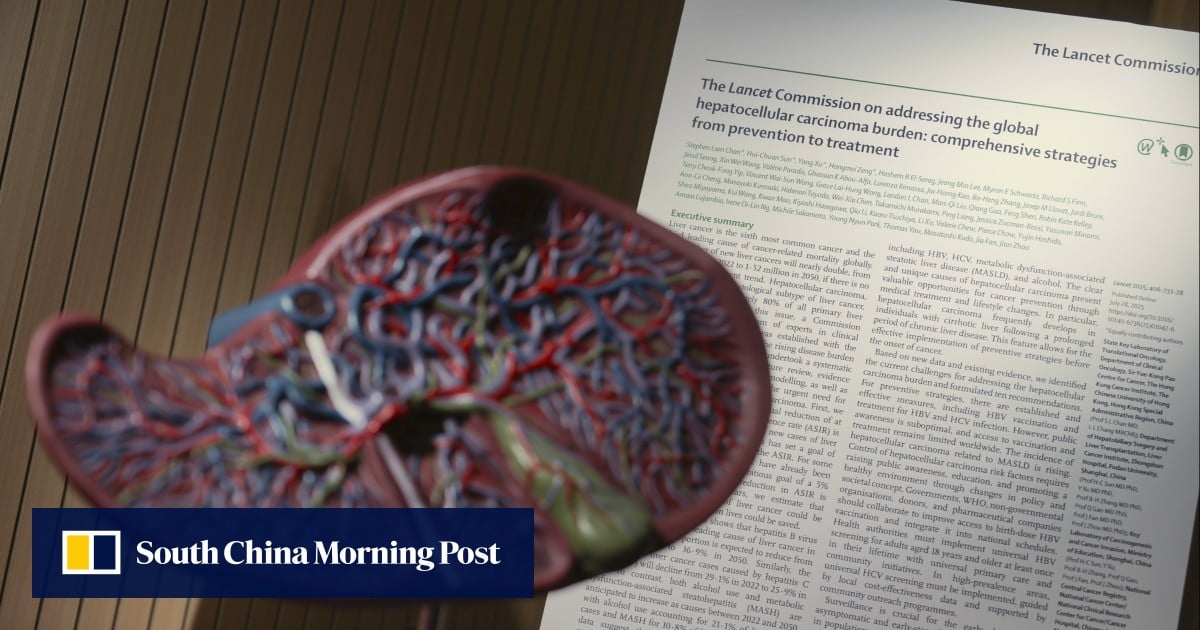Hong Kong Experts: Simple Lifestyle Changes Could Halt Soaring Liver Cancer Rates by 2050

Alarming projections indicate a potential doubling of liver cancer cases globally by 2050. However, a recent report from a Lancet Commission, highlighted by Hong Kong medical experts, offers a glimmer of hope. The study suggests that proactive lifestyle interventions – particularly addressing alcohol consumption, obesity, and viral hepatitis – can significantly reverse this concerning trend and drastically reduce the future burden of this devastating disease.
The Grim Reality: Liver Cancer on the Rise
Liver cancer is the sixth leading cause of cancer deaths worldwide, and its incidence is steadily increasing. Factors contributing to this rise include the growing prevalence of non-alcoholic fatty liver disease (NAFLD) – often linked to obesity and diabetes – as well as continued high rates of hepatitis B and C infections, and excessive alcohol consumption. The Lancet Commission’s modelling estimates that without decisive action, the number of liver cancer cases could double by the middle of the century, placing immense strain on healthcare systems and causing untold suffering.
The Power of Prevention: Key Recommendations
The good news is that liver cancer is often preventable. The Lancet Commission’s report outlines a series of evidence-based strategies that can make a substantial difference. These include:
- Raising Alcohol Prices and Restricting Availability: Reducing alcohol consumption is a crucial step, given its significant link to liver disease and cancer. Increased prices and limitations on where alcohol can be purchased have proven effective in reducing consumption rates.
- Combating Obesity and Diabetes: Public health initiatives focused on promoting healthy diets and regular physical activity are essential to address the growing epidemic of NAFLD.
- Hepatitis B and C Screening and Treatment: Early detection and treatment of hepatitis B and C infections can prevent progression to cirrhosis and liver cancer. Expanded access to vaccination for hepatitis B is also critical.
- Improving Sanitation and Water Quality: In regions where parasitic infections contribute to liver disease, improving sanitation and water quality can have a significant impact.
- Promoting Healthy Diets: Encouraging the consumption of fruits, vegetables, and whole grains while limiting processed foods and sugary drinks can improve overall liver health.
Hong Kong's Role and Global Implications
Hong Kong’s medical experts are actively engaged in research and public health initiatives aimed at preventing liver cancer. The city's experience in addressing public health challenges provides valuable lessons for other regions facing similar concerns. The Lancet Commission’s findings underscore the importance of a coordinated, global effort to tackle the risk factors for liver cancer.
A Call to Action: Securing a Healthier Future
The projections for liver cancer are sobering, but not inevitable. By implementing evidence-based prevention strategies, we can significantly reduce the number of cases and improve the lives of millions. This requires a collaborative effort involving governments, healthcare professionals, researchers, and individuals. Investing in prevention is not just a matter of public health; it’s an investment in a healthier and more sustainable future for all.





